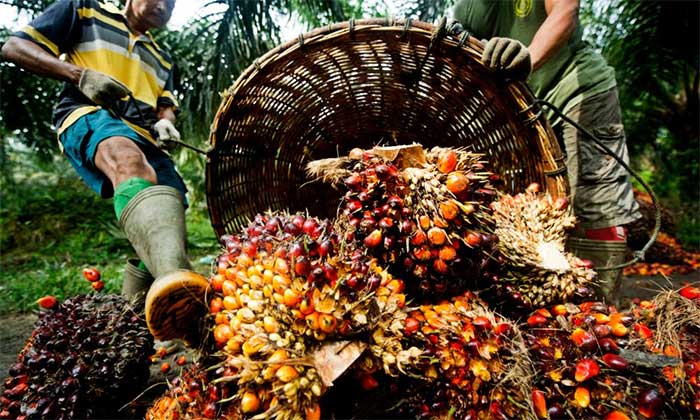Energy Absolute (EA), a developer and operator of electric vehicles and renewable energy based in Thailand, is conducting research to convert palm oil-based biodiesel into sustainable aviation fuel (SAF) to reduce carbon emissions in the aviation sector.
According to EA, this type of biodiesel is referred to as Sustainable Aviation Fuel (SAF), which will be produced from compounds with a chemical structure similar to that of conventional jet fuel.

Workers harvesting palm.
Mr. Vasu Klomkliang, Senior Vice President of EA for Strategic Development and Investment Planning, stated that the company aims to develop biodiesel that meets the standards of A-1 jet fuel to replace fossil fuel currently in use.
The European Union (EU) recently announced that by 2040, 50% of the fuel used for aviation in Europe must be blended with SAF. Airlines that fail to comply with the regulation will face carbon emission taxes.
Mr. Vasu emphasized that using biodiesel for jet fuel will significantly reduce greenhouse gas emissions from the transportation sector, which is one of the top three emitting industries worldwide.
The development of biodiesel for aviation is part of EA’s plan to enhance the value of biodiesel that EA has been producing for nearly two decades.
Previously, EA has produced other value-added products such as refined glycerin, a raw material for cosmetics and personal care products, as well as phase change materials (PCM), which can be used as thermal barrier materials.
Currently, EA’s production capacity for palm oil-derived methyl esters is 800,000 liters per day. Methyl esters are blended with diesel to produce biodiesel. Meanwhile, the company’s production capacity for refined glycerin is 80 tons per day, and for PCM, it is 65 tons per day.
Next year, EA plans to export PCM to East Asia, Europe, and North America after successfully entering the Japanese market.



















































